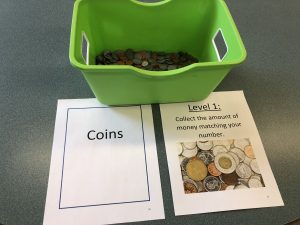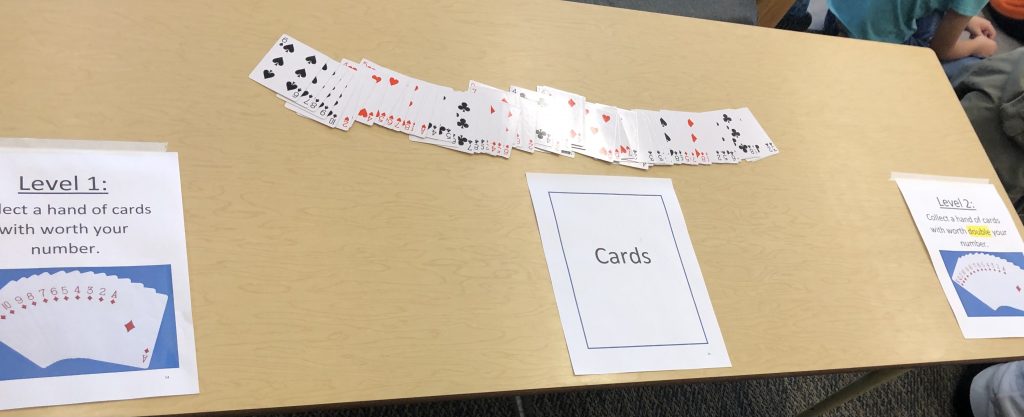I. General Information
School Name: Baker Drive Elementary
School District: SD#43 Coquitlam
Inquiry Team Members: Denean Lederer: dlederer@sd43.bc.ca
Sue Sabourin:ssabourin@sd43.bc.ca
Kelsey Keller: kkeller@sd43.bc.ca
Kelly Kolbe: kkolbe@sd43.bc.ca
Lindsay Ward: lward@sd43.bc.ca
Karen Capel; kcapel@sd43.bc.ca
Sandi David: sdavid@sd43.bc.ca
Ryan Hoben: rhoben@sd43.bc.ca
Christine Dos Santos: cdossantos@sd43.bc.ca
Dave King: dking@sd43.bc.ca
Mary-Anne Guevarra: mguevarra@sd43.bc.ca
Mariah Ciaburri: mciaburri@sd43.bc.ca
Inquiry Team Contact Name/Email: Jill Reid/jreid@sd43.bc.ca
II. Inquiry Project Information
Type of Inquiry: NOIIE
Grade Levels Addressed Through Inquiry: Primary (K-3), Intermediate (4-7)
Curricular Areas Addressed: Language Arts – Oral Language, Mathematics / Numeracy
Focus Addressed: Indigenous understandings (for example, Traditional Knowledge, oral history, reconciliation), Experiential learning, First Peoples Principles of Learning, Formative assessment, Indigenous pedagogy, Land, Nature or Place-based learning
In one sentence, what was your focus for the year? Our learners as our teachers – applying principles of formative assessment to our learning organization.
III. Spirals of Inquiry Details
Scanning: When scanning in the fall, the four key questions were embedded within direct teaching as well as within conferencing/story gathering processes with our learners to gain greater insight into their perception of the learning goals and their learning.
Teachers took different approaches to gathering student voice in relation to our areas of focus (Numeracy, Indigenous Teaching/FPPoL), explicitly teaching to the learning intentions and THEN having students talk about what they are learning in relation to this — where are they now and what next.
Concretely in Numeracy, we started with a fall performance assessment; even though we are three years into evolving our practice with District mentorship/school staff leadership and have a plan – still – communicating Mathematical thinking and using a variety of strategies showed to be weak in new situations. FSA results and classroom assessments also showed that applying thinking in novel situations needed more focus.
For our focus on Indigenous teachers and also FPPoL, our scanning showed us great interest and engagement from our learners when observing learning contexts. Our collected evidence though – particularly from older learners – indicated that internalizing the learning and being able to identify and connect the learning experiences together (consolidating) wasn’t necessarily present.
Focus: Our school goals all include the strategy of EXPLICITLY stating the learning intentions from our learning organization to our learners – having them internalized – what we are learning, why it matters and how we are doing – for adults and students. Analysis of Data: Products, conversations, and student perspectives from report cards lead us to wonder if our learners understand what our learning goals for them as our school community are, why they matter, where we are right now and where we are trying to go; our learners finding their place and meaning in their learning.
Hunch: Analysis of Data: Products, conversations, student perspectives from report cards, and FSA information lead us to wonder if learners can explicitly articulate the key/consistent learning intentions for them as individual learners. So much time, effort, and energy is being invested in innovative instructional design, to make it interactive, experiential and fun – in key focus areas. For our learners, we need more of their feedback to inform our instruction – more information to ensure THEY can tell us what they are learning and why it is important (which most are able to do), as well as where they are at as an individual learner and where they are going next (this is less consistent). Our hunch is that this inconsistency leads to learners not being able to identify these learning experiences when reflecting and also not being able to apply this learning in novel or unfamiliar situations.
New Professional Learning: Teachers worked with the District Numeracy Coordinator to pilot a fall and spring performance-based assessment to further develop their knowledge of the critical phases for numeracy development in young children (Kathy Richardson), as well as to apply these phases to their planning and observation of student learning.
Both our District Coordinator and Learning Support Teacher were invaluable resources and support.
Indigenous Teachings and FPPoL were a focus throughout the year, led by knowledgeable and passionate staff both Indigenous and non-Indigenous. All staff were gifted Grandmother Circle teachings led by a local elder. Professional development had a very intentional focus on learning from our land and honouring our local Kwikwetlem Nation – we were gifted a nation flag and learned the cleansing ceremony. Staff participated in collaborative mid-year professional development, where they shared practices with one another that embed FPPoL. Two teachers learning hən̓q̓əmin̓əm̓ have been gifted the language learning to share with us and our learners. We also explored the topic of residential schools more in-depth to increase our knowledge of the impacts.
What has been the most helpful is our passionate colleague teacher leaders who share their knowledge, leadership and collaborative open thinking with us. We have also continued to work with our District Indigenous Education Support Teacher and Department.
Taking Action:
Strategy 1) Determining an evidence-based foundation that focuses on professional conversation (Kathy Richardson’s Numeracy work – critical phases for children’s development of mathematical thinking), then use student voice/evidence/stories in relation to this foundation (it’s not a program, but rather relevant research-based descriptors of student learning and development; it didn’t limit instructional approaches).
We used this foundation to collect student learning and frame conversations with our learners that could inform school-wide practice. In our case, particularly multiplicative thinking forms the foundation for our shared conversation about how our learners are doing in relation to research-based indicators of developmental mathematical thinking. As a staff it helps us differentiate: extending or providing targeted and intensive support inclusively for the very few to leap frog as needed.
Strategy 2) Using a clear school-wide data collection process – pre-, during-, and post-approach – across the school to create more opportunity for collaborative conversations beyond individual classrooms, that was inclusive of student voice and teachers observations of products, processes/strategies and conferences/stories.
Strategy 3) Working closely with outside voices – in particular, our District Coordinators and Learning Support Teachers – to inform our practice and ensure we are innovating based on research, to increase our knowledge and efficiency of teaching and learning, to ensure we don’t become introverted and only see our learners within the context of our small community, and to connect us with other school communities to learn from one another.
Photo description (above): Images from Baker Drive Elementary’s inquiry project
Checking: Individual conferences and student perspectives indicate we are making progress towards our learners being able to articulate what they are learning, why it is important and what our learning organizations’ learning intentions are (never words they would use). We have seen an increase in both the number of students able to identify adults who care about them and believe they will be a success, and also an increase in the number of adults each learner is able to identify.
Evidence collected via conference/story and the student learning survey indicates an increase in the number of students recognizing they participate in Indigenous teachings and learning experiences often (daily or weekly) and that it’s important – what they are learning and why it matters.
Reflections/Advice: There is still work to be done in having students see the adult community as a whole to be caring and supportive of them – a hunch is that they see this as their current and past teacher’s job, however it is not as often that support staff are named. One student even remarked that it wasn’t the principal’s job to care about students – though there are students that identify support staff and outside class staff as caring and supportive. Our focus will be on every learner being able to do this and expanding the cultural belief that adults in our community care and are supportive of each learners’ success.
Our hunch is that for our learners to move beyond “the what and why” of Indigenous Teachings and FPPoL to their individual learning journeys and growth, is our likely next step. How can we do this in a manner that maintains the “whole” while learning and internalizing the “parts” — Focusing on the learners more, or the teaching less, to inform our practice? Zooming in and out? Our next steps are not clear…
Our suggestions for others interested in similar topics:
1.) Determine a foundation to focus shared/collaborative professional conversations that are more often about ways of professional thinking rather than approaches/how to teach – a foundation that describes the learning and involves learners.
2.) Leverage organizational time and staff structures that already exist as much as possible (i.e. staff meetings, PD Days, school leader/facilitator positions, student conferences, early dismissals, etc.), particularly colleague leadership.
3.) Access outside voices – particularly teacher colleagues – as partners.


